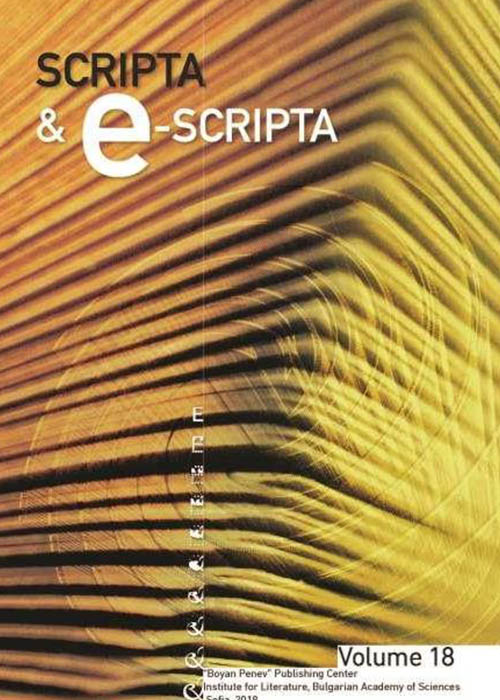Hellenophilism in Georgian Literature as Cultural Orientation towards Byzantine Thought: Ephrem Mtsire‘s Cultural Orientation. Part I

- Author(s): Ketevan Bezarashvili
- Subject(s): Language studies // Language and Literature Studies // Theoretical Linguistics // Studies of Literature // Historical Linguistics // Comparative Linguistics // Philology // Translation Studies //
-
Published by: Institute for Literature BAS

- Print ISSN: 1312-238X
- Summary/Abstract:
This paper is part of a more extensive study on the medieval Georgian writer and translator Ephrem Mtsire who continued the traditions with his works that gradually acquired clearly Hellenophile character, thus beginning the formation of Hellenophilism as a trend in Georgian literature. Hellenophilism is not considered in this paper only in its narrower linguo-literary aspect which meant attaining the formal equivalence to the original. Hellenophilism is regarded here in its wider sense of special interest of non-Greek scholars towards the thinking processes of Byzantine culture of different periods. The study of both aspects reveals the positive influence of Hellenophilism on Georgian literature. Hellenophilism as cultural orientation begins with Ephrem Mtsire‘s literary activities.
Journal: Scripta & e-Scripta vol. 14-15, 2015
-
Page Range: 335-364
No. of Pages: 30
Language: English - LINK CEEOL: https://www.ceeol.com/search/article-detail?id=418025
-
Ketevan BezarashviliAssoc. Prof., Dr habil. Ilia Chavchavadze State University Senior Researcher, National Centre of Manuscripts, Tbilisi, Georgia
-
SUBJECT: Language studies // Language and Literature Studies // Theoretical Linguistics // Studies of Literature // Historical Linguistics // Comparative Linguistics // Philology // Translation Studies //KEYWORDS:
-